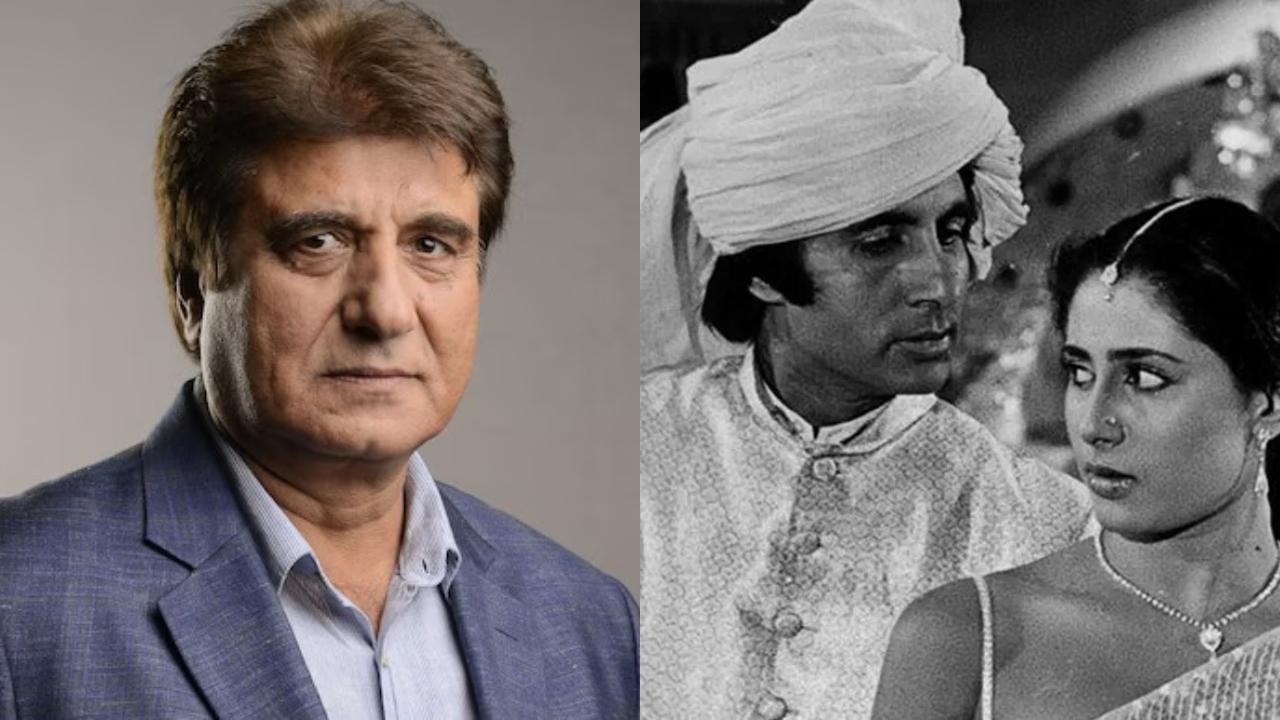
Veteran actor Raj Babbar, celebrated for his remarkable performances in the Indian film industry, turns 72 today. As we honor his extensive career, we revisit a significant episode when Babbar was cast and then unceremoniously dismissed from the 1982 hit film ‘Namak Halaal,’ starring the iconic Amitabh Bachchan.
Raj Babbar began his journey in Bollywood during the late 70s. With his breakout role in the 1980 film ‘Insaaf Ka Taraazu,’ Babbar quickly established himself as a versatile actor. He subsequently graced the silver screen with memorable performances in films like ‘Main Aawara Hoon’ and ‘Nikaah.’ However, a lesser-known fact about his career is his brief association with ‘Namak Halaal.’
‘Namak Halaal,’ directed by the acclaimed filmmaker Prakash Mehra, was initially set to feature Vinod Khanna alongside Amitabh Bachchan. However, Khanna announced his retirement from the film industry around this time, prompting Mehra to consider Raj Babbar for the role instead. Despite the golden opportunity, Babbar’s initial reaction was far from jubilant.
Past unfulfilled promises had made Babbar cautious. He was previously slated to be part of a Dilip Kumar film, a chance that evaporated at the very last minute. Scarcity and struggle were familiar adversaries for Babbar, who had just welcomed a daughter with his wife and was grappling with financial constraints. When Mehra offered him the role in ‘Namak Halaal,’ Babbar hesitantly accepted, seeking assurances for his stay in Mumbai. The production team responded by sending him a flight ticket, and with Rs 100 in his pocket and after selling his scooter to provide his wife with some financial support, Babbar arrived in the city of dreams.
Raj’s arrival in Mumbai, however, did not lead to the fruitful venture he had envisioned. Despite his excitement and commitment, disfavor within the crew grew. The reasons behind this collective reluctance remain nebulous, but the outcome was definite—Babbar was fired from ‘Namak Halaal.’ The role intended for him eventually went to Shashi Kapoor.
.
Babbar did not leave empty-handed, though. Understanding his plight, Prakash Mehra honored his promise to a certain extent. Babbar requested permission to stay in Mumbai for at least a year, leveraging Mehra’s support. Mehra obliged, allowing Babbar the time to find his footing in the competitive Bollywood milieu.
‘Namak Halaal’ turned out to be a monumental success. Starring Bachchan, Kapoor, Smita Patil, Parveen Babi, and Waheeda Rehman, the film became the third highest-grossing Indian film of 1982, amassing Rs 120 million (approximately USD 12.64 million at the time). Over the years, it has attained the status of the biggest comedy blockbuster in Indian cinema history, selling more than 20 million tickets. Its inflation-adjusted net income in 2019 placed it at a staggering nearly Rs 3 billion (USD 36 million). The enduring popularity of ‘Namak Halaal’ led to its remakes in other Indian languages, including Telugu’s ‘Bhale Ramudu’ (1984) and Tamil’s ‘Velaikaran.’
Babbar’s early ordeal in the industry stands as a testament to the unpredictability and challenges faced by actors striving for success. His perseverance, even in the face of considerable setbacks, ultimately paved the way for a significant and resilient career in Bollywood. Babbar went on to star in numerous successful films and became a revered figure in Indian cinema.
His journey through the highs and lows of the entertainment world also serves as inspiration for aspiring actors, illustrating the importance of determination and resilience. As Raj Babbar celebrates his 72nd birthday, his story reminds us of the perseverance required in the competitive world of cinema and honors his contributions to Indian films.
Today, Babbar stands not just as an actor but as a symbol of tenacity and talent, with a legacy that continues to inspire many. Despite the challenging start, his career flourished, leaving an indelible mark on the industry. As we celebrate his birthday, we also reflect on the lessons from his journey, celebrating not just his films but the indomitable spirit he represents.












